Law firms, corporate legal departments and bar associations across Texas have started special pro bono projects to assist with the legal needs of migrant children flooding across the border, but the state’s highest ranking judge said Tuesday that many more in the legal profession need to step up.
Nathan Hecht, the chief justice of the Supreme Court of Texas, said Tuesday that the wave of new cases likely to hit the state’s family court system will require hundreds or even thousands of volunteer lawyers to guarantee that the cases are handled quickly and fairly under the law.
“The need is going to be a whole lot bigger than the supply,” Chief Justice Hecht said. “Many lawyers are already standing up to volunteer, but we are going to need to call on a lot more to pitch in. This is going to impact our family courts very heavily.”
The chief justice said that several law firms and corporate legal departments have already stepped forward.
Law firm giants Baker Botts, Greenberg Traurig, Norton Rose Fulbright, Holland & Knight, Littler Mendelson, Hunton & Williams, Jones Day, K&L Gates and Vinson & Elkins are either already representing and providing support to some of the migrant children or will train lawyers to do so in the near future. Separately, in-house lawyers from AT&T and ExxonMobil, with two of the nation’s premiere corporate legal departments and award-winning pro bono programs, are undergoing training to help out if needed.
“We are going to need all of them and a lot more,” Chief Justice Hecht said.
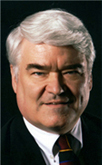
While the migrant children are the primary concern of the federal immigration courts, the state’s top jurist said that a large percentage of those seeking to stay will start their legal journey in the state court system as part of the process of determining the issue of custody. He said Harris County family courts reported Monday that it already has 37 of the new migrant children set on its calendar. Since the first of the year, Bexar County has had 87 such cases filed in its courts.
Chief Justice Hecht said that he and court officials are researching possible ways to pay for senior judges to help handle the anticipated jump in the caseload, but he said that the possible use of volunteer special masters is also being explored.
“Most lawyers, especially corporate lawyers, are not familiar with these family law issues, but it is an easily knowable area of the law,” the chief justice said. “Handbooks, materials and briefs are being prepared even as we speak to help out those lawyers.”
A Call to Action
Some law firms have already sent lawyers to shelter sites to meet with the children.
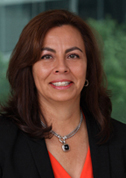
“We have already deployed a number of our Spanish-speaking lawyers, primarily from Texas, to Lackland Air Force Base,” said Hilda Galvan, partner-in-charge of Jones Day’s Dallas office.
Many of the law firms are working with non-profit organizations, including Human Rights Initiative of North Texas, Catholic Charities and Kids in Need of Defense (KIND), which have established programs in place that include training lawyers who are unfamiliar with immigration law.

“There’s succinct, on point, almost cookbook recipe-type training that HRI and Catholic Charities have put together,” said Dan Garner, a corporate finance partner at Hunton & Williams in Dallas. “To not be experienced in litigation is not a barrier in this kind of work.”
Mey Ly, a Dallas lawyer at Littler, a labor and employment law firm, said that attorneys – regardless of their practice area – are in a unique position to help the less fortunate navigate the law.
“We’re the only subset of people who can help in this way,” she said. “If we don’t do it, who else will?”

Training Available
The Dallas Hispanic Bar Association got heavily involved finding more lawyers for these efforts last month. The organization formed a committee to recruit volunteer attorneys to represent the children in removal proceedings and assist in other efforts to ensure that they are treated fairly throughout the legal process.
The committee so far has recruited and trained more than 100 attorneys through the HRI’s training program, which teaches attorneys to conduct short screening interviews and inform the children of their rights. The DHBA is also coordinating volunteer opportunities to help children in shelters throughout Texas and Oklahoma.
Attorneys interested in volunteering can attend DHBA information sessions at the Belo mansion this Thursday and on July 30. The presentations will include background information behind the migration process the children go through, as well as the legal proceedings involved and volunteering opportunities for lawyers.
DHBA president Elisabeth Wilson said her organization became proactive in the effort when members came forward and said they wanted to do something “as attorneys and in particular as a Hispanic attorney organization” to help.
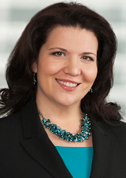
“The Hispanic community in general has interest in assuring that children are treated fairly in the legal proceedings,” said Wilson, a commercial litigation associate at Winstead, a Dallas-based corporate law firm.
Leaders of the Hispanic Bar Association of Houston (HisBA) agree.
“I have not seen this much correspondence in the Hispanic legal community in a long time,” said HisBA president Juan Garcia, who told The Texas Lawbook that HisBA recently voted unanimously to join a coalition of other Hispanic bar associations in the state committed to providing pro bono legal services to the children in need.
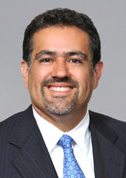
Next week, Vinson & Elkins’ Dallas office will host a CLE program by the nonprofit organization, CHILDREN AT RISK, the HRI and Catholic Charities that will inform attorneys, service providers and other child advocates about the legal status unaccompanied children can take called Special Immigrant Juvenile Status, as well as other immigration issues that these children face when crossing the border.
Perkins Coie’s Dallas office is hosting a CLE with the HRI on the same topic Aug. 1. Those who are interested also have the option to attend an alternative session July 31 at HRI’s offices.
Lawyers in Houston can attend CLE training on Aug. 11 with K&L Gates, which Houston partner John Sullivan III said his firm will host in conjunction with in-house ExxonMobil lawyers, Human Rights First and KIND.
Recent Successes
Some firms have already handled some immigration cases tied to the elevated border crisis.
In April, Greenberg Traurig, which has offices in Austin, Dallas and Houston, trained more than 100 lawyers to handle child immigration cases. The firm has already tackled 25 such cases.
Jennifer Tomsen, a commercial litigator at Greenberg in Houston, points out that there is no right to counsel in immigration cases, even though statistics show that those who are represented are three times more likely to be successful. For children, facing a daunting legal process without a lawyer puts them at an even more significant disadvantage.
Federal law establishes basic criteria that in cases where the “children have been abused, abandoned and neglected by one or both parents and where it is not in the best interest of the children to be sent back,” that the migrant juveniles be granted permission to stay, Tomsen said.
“We train our lawyers for several hours to understand the complexities of immigration law and procedures under the law,” Tomsen said. “The idea that a child will know and understand the legal standards involved and know the evidence they need to present to the family and immigration courts is a very far stretch.”
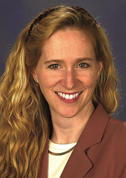
Legal experts say that proposals to fast track the deportation of the children, including allowing border agents to make the decisions, raise significant issues.
“It takes a long time for lawyers to gain the trust of the children in order to learn their situations and stories,” Tomsen said. “I worry that fast tracking these cases will lead to due process violations.”
Tomsen has handled cases for two teenaged immigrants – one from Honduras and the other from El Salvador – and won both of them.
“They were the best days I’ve had in my legal career,” she said.
Lawyers in the Houston office of Baker Botts have 22 active pro bono immigration matters through partnerships with non-profits, such as KIND and Catholic Charities, said corporate M&A partner Hillary Holmes, who is head of the firm’s Houston pro bono program.
In January, San Antonio Norton Rose Fulbright partner Michael Parker and former partner Jay Friedman sealed an immigration win in conjunction with the Refugee and Immigrant Center for Education and Legal Services (RAICES) for a 17-year-old boy who fled to the U.S. from Honduras. He will be able to legally reside in the U.S. for 10 years. Currently, he is in the Unaccompanied Refugee Minor (URM) program in Houston, which provides him with foster care, education and the social skills to achieve self-sufficiency.
Stewart Gagnon, the firm’s U.S. pro bono committee chair, said Norton Rose Fulbright’s work on these cases is not going away anytime soon. He said the firm is in talks to host a CLE in its offices, is continuing its relationship with Catholic Charities in Houston and has helped coordinate a meeting between all programs participating in helping the migrant children.
“This year, we have had a dramatic increase in interest in handling these matters,” Gagnon said in an email. “The number of children we represent in these matters through court appointments has also risen, increasing to 37 so far this year from 26 in all of 2013.”
Gagnon added that he has mentored four Norton Rose Fulbright attorneys this month who are currently handling one of these cases.
Norton Rose Fulbright has been repeatedly recognized for its pro bono immigration services. For three consecutive years, it was named Pro Bono Firm of the Year by American Gateways, an organization that provides immigrants with needed educational and legal resources to make their way through the U.S. immigration system.

But despite the leading efforts that many firms are taking, attorneys are quick to admit that the state still needs the help from many more to adequately address the border crisis.
Aubrey Meyers, a lawyer at Holland & Knight in Dallas and an HRI board member, said it is a common misunderstanding that only the 2,000 children (who may arrive by the end of the month) are coming to Dallas. She said the numbers are expected to be much higher.
The shelters simply hold 2,000 children at a time, so when one group leaves, “there will be another coming in to fill those beds,” Meyers said.
“We’re going to need as many lawyers around town as possible,” said Holland & Knight partner Eric Pfeifle.
There is a concern of many in the legal profession that lawyers will not step forward for fear that their involvement could become entwined in the intense political debate surrounding the issue.
“There are certainly political issues to tackle here, but we need to address those issues without making these kids pawns in the game,” said Mark Melton, a tax lawyer at Hunton & Williams in Dallas.
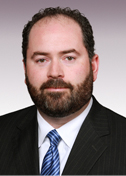
Melton recently visited the Fort Worth facility hosting 30 migrant children and interviewed some of them. He said the interviews, such as one with a 6-year-old Honduras girl, were “absolutely heartbreaking.” The girl showed Melton her arms and legs, which were bruised and scarred due to abuse she had suffered from her caretaker in Honduras.
“There will be plenty of time to be a Republican or Democrat, a hard-liner or a bleeding heart,” said Melton. “But at this moment, let’s just be human beings.”
© 2014 The Texas Lawbook. Content of The Texas Lawbook is controlled and protected by specific licensing agreements with our subscribers and under federal copyright laws. Any distribution of this content without the consent of The Texas Lawbook is prohibited.
If you see any inaccuracy in any article in The Texas Lawbook, please contact us. Our goal is content that is 100% true and accurate. Thank you.
